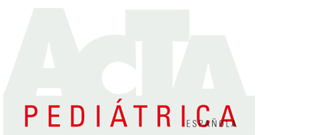Resumen
Title: Meckel's diverticulum as a cause of intestinal invagination
Introduction: Intussusception is the most common cause of intestinal obstruction between 6 months and 3 years, having a pathological lead point in 0,3-20% of cases. Meckel´s diverticulum is a frequent cause of secondary intussusception, which treatment is mostly surgical.
Methods: This work is a retrospective review of 130 patients diagnosed as intussusceptions. The samples were taken between 2013 and 2018, at the Department of Pediatric Emergency from the Hospital 12 de Octubre (Madrid).
Results: Pathological lead point was identified in ten cases (out of 130 patients): 5 intestinal lymphomas, 4 Meckel's diverticulums and 1 intestinal duplication cyst. Secondary intussusception was more common in males (4:1); children older than 3 years (60%); and patients with ileocolic intussusception (90%). Meckel's diverticulum affected 4 children between 1 to 4 years old, 3 males and 1 female. All were diagnosed for the intestinal invagination by ultrasound, but only in one case it suggested Meckel's diverticulum. Required surgical treatment always included manual reduction of intussusceptions, followed of diverticulectomy or intestinal resection plus anastomosis.
Conclusions: Secondary intussusception is more common in children older than 3 years where conservative treatment fails. Meckel's diverticulum is one of the most common causes of secondary invagination, its clinical manifestations are not specific and, at present, its preoperative diagnosis is challenging. Currently, the use of the laparoscopic/laparoassisted approach is limited for the treatment of invaginations.














